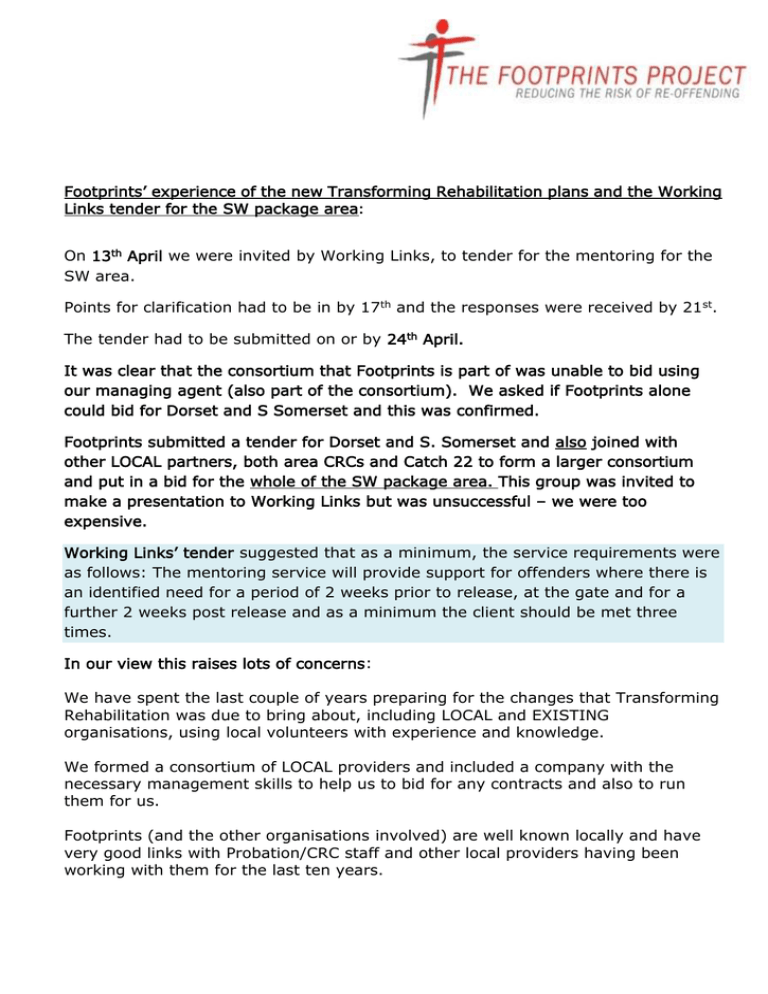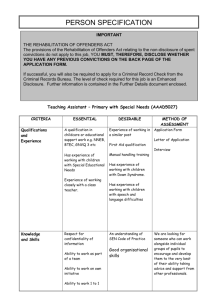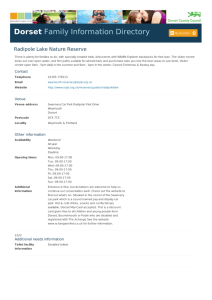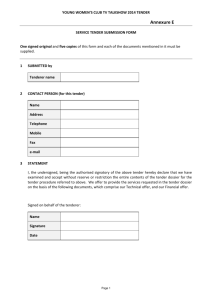Click here for more information
advertisement

Footprints’ experience of the new Transforming Rehabilitation plans and the Working Links tender for the SW package area: On 13th April we were invited by Working Links, to tender for the mentoring for the SW area. Points for clarification had to be in by 17th and the responses were received by 21st. The tender had to be submitted on or by 24th April. It was clear that the consortium that Footprints is part of was unable to bid using our managing agent (also part of the consortium). We asked if Footprints alone could bid for Dorset and S Somerset and this was confirmed. Footprints submitted a tender for Dorset and S. Somerset and also joined with other LOCAL partners, both area CRCs and Catch 22 to form a larger consortium and put in a bid for the whole of the SW package area. This group was invited to make a presentation to Working Links but was unsuccessful – we were too expensive. Working Links’ tender suggested that as a minimum, the service requirements were as follows: The mentoring service will provide support for offenders where there is an identified need for a period of 2 weeks prior to release, at the gate and for a further 2 weeks post release and as a minimum the client should be met three times. In our view this raises lots of concerns: We have spent the last couple of years preparing for the changes that Transforming Rehabilitation was due to bring about, including LOCAL and EXISTING organisations, using local volunteers with experience and knowledge. We formed a consortium of LOCAL providers and included a company with the necessary management skills to help us to bid for any contracts and also to run them for us. Footprints (and the other organisations involved) are well known locally and have very good links with Probation/CRC staff and other local providers having been working with them for the last ten years. We were sceptical around the tender specifications as clearly what we were being asked to tender for is NOT mentoring and therefore we knew we have to include ‘add ons’ in order to keep to our aims and avoid mission drift. So – what was suggested below is not going to happen in the SW area. Transforming Rehabilitation – A Strategy for Reform – May 2013- submitted to Parliament by Rt Hon Chris Grayling It is not a surprise, faced with stubbornly high reoffending rates, that there were important areas of consensus in the response to our recent consultation on ‘Transforming Rehabilitation’: offenders need to be supported ‘through the prison gate’, providing consistency between custody and community; those released from short-sentences, who currently do not get support, need rehabilitation if we are to bring their prolific reoffending under control; public protection is paramount, and the public sector must take the key role in keeping people safe; the voluntary sector has an important contribution to make in mentoring and turning offenders’ lives around; nothing we do will work unless it is rooted in local partnerships and brings together the full range of support, be it in housing, employment advice, drug treatment or mental health services. Where we go from here: We have decided that since there will clearly be huge gaps in the ‘mentoring service’ that is going to be provided, and some of those who ASK for a mentor, may well not get one and likewise, some of those who benefit from the ‘through the gate’ service provided will not be ready to ‘stand alone’ after only two weeks of support in the community, that we will continue to do our work and face the challenges ahead in so doing. The facts: As we know – the group that really need help ‘through the gate’ are the MOST HARD TO REACH. We also know that the same person engaging with them IN CUSTODY and then IN THE COMMUNITY is the BEST way for mentoring to work. Our client group – the people who ASK for our help and support – are those who have a history of mental health problems, they have been brought up in care homes and more often without their parents’ support and love. Most have suffered extremes of abusive, mental, sexual and physical. Their parents are likely to have been involved in the criminal justice system and also to have suffered from similar health problems. As a result of the chaotic lives they have been born into, many of our clients have addiction problems – they have been excluded from schools prematurely as they have been difficult children to manage, and often cannot read and write. They are not bad people. They are vulnerable people, suffering from very low self-esteem and levels of confidence, who have turned to crime by default, to sustain their addictions, and whilst this does not make their criminal behaviour at all acceptable– in order for this to stop, they need real, genuine, care and support and TIME. Problems to date: Our Dorset offenders are currently being held in HMP Exeter, HMP Channings Wood – both in Devon, and HMP Winchester, Hampshire. Our women are in HMP Eastwood Park – Gloucestershire. None of these are ‘local’ to Dorset. Catch 22 provides the resettlement services in all the above MALE prisons, working alongside the Community Rehabilitation Company staff (CRC). As I write: of those being released from HMP Winchester back into Dorset – MOST have no accommodation organised AND in Dorset, you cannot just present them to the council and get a bed – therefore they are mostly ON THE STREETS. How can the rate of reoffending be reduced if our clients RETURN TO THE STREET AND HAVE NO ROOF OVER THEIR HEAD? Jane Barkes – Chief Executive – The Footprints Project -30th June 2015





